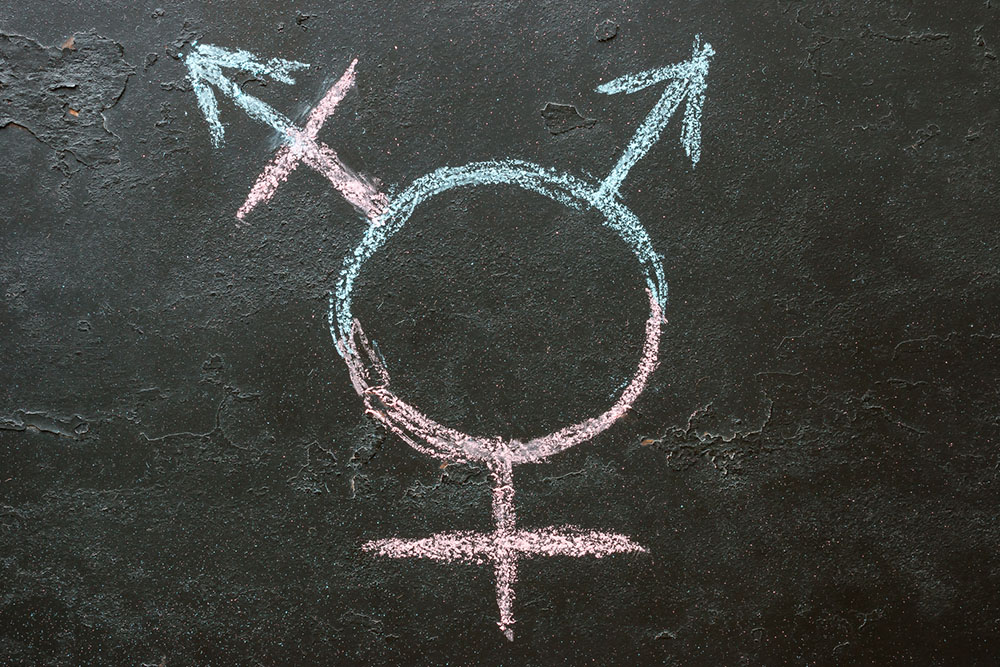
(Dreamstime/Alexander Alexeev)
When the Archdiocese of Portland, Oregon, issued its new pastoral guidelines about LGBTQ students last month, Archbishop Alexander Sample wrote in an accompanying letter, "May everyone who reads this document feel the love and compassion with which it was written ..."
But for many educators, students and their families, those are not the feelings they had after reading "A Catholic Response to Gender Identity Theory: Catechesis and Pastoral Guidelines," which directs students at Catholic schools to use names and pronouns assigned at birth.
Instead, the new policy in Portland — as well as ones from 30-plus other U.S. dioceses and archdioceses — have left many LGBTQ students, their families, teachers, ministers and advocates feeling hurt, disenfranchised and brokenhearted, as NCR staff reporter Katie Collins Scott reported last week. They also fear for students' safety, given the higher rates of suicide attempts by LGBTQ youth. We echo this concern.
Last summer, Scott contacted all episcopates with known policies on gender and sexuality to ask if LGBTQ people were consulted during the drafting process. Only about a third responded to her request — itself a sign of lack of transparency — and of those who did respond, only a handful said they had input from people with gender dysphoria, but were not willing to give more details about their dialogue or process.
Students, parents and schools most affected by these policies — indeed, all Catholics — deserve more information about the process by which they have come to be, about who or what is prompting them, and about who is at the table when they are being created. At the very least, dioceses and archdioceses need to apply the values of dialogue and transparency to the process of creating LGBTQ policies, and to discerning whether such policies are necessary.
Instead, they are being born in secrecy, and critics are concerned about a lack of input from reputable mental health and medical experts, not to mention LGBTQ individuals themselves.
Advertisement
What is prompting these policies: On-the-ground concerns? Questions raised by conservative Catholics, perhaps in reaction to moves toward greater acceptance in the broader culture? A sincere desire to uphold what bishops believe is a core Catholic teaching? We don't know because the process hasn't been transparent.
Granted, there is much we don't understand about sexual identity, gender dysphoria and transgenderism, especially how it affects young people. All the more reason to tread carefully when crafting policies that make sweeping and exclusionary rules about LGBTQ students and their families.
Instead, the church needs to listen to people who are affected by them. Ideally, before any policy like this goes in place, the bishop or administration of the school should consider going on a retreat with young people struggling with their identity, just to listen to them.
It is possible for church leaders to address these issues more carefully and with some level of transparency and dialogue, as the recent process in the Diocese of Davenport, Iowa, attests. The bishop there formed a committee and sought to educate himself and others, with input from transgender people themselves. But the Davenport Diocese is an outlier.
In response to a lack of transparency and dialogue before the release of policies in Omaha, Nebraska, and Lafayette, Louisiana, grassroots groups have formed to ask church leaders to amend or repeal the policies. Neither group has been successful in getting an in-person meeting with diocesan officials.
Although most of these new policies target transgender and nonbinary students, others include rules that apply to gay and lesbian students, staff and even parents. For example, the Denver Archdiocese's policy says two parents of the same sex cannot be listed as an emergency contact on school forms. But even if a policy does not explicitly reference gay and lesbian students, the message is that students in sexual minority groups are suspect or unwelcome.
As San Diego Cardinal Robert McElroy has said recently, the church is risking losing young people over this issue: "We believe we are approaching a real crisis in how to minister to the LGBT+ community. It is clear that the church in the U.S. must transform its outreach to LGBT+ persons if it seeks to be a truly welcoming presence in the world."
Pope Francis also has demonstrated that the church can be more welcoming, more open, more transparent, even while maintaining church teaching. It's a model U.S. dioceses should follow when considering policies about LGBTQ students.



